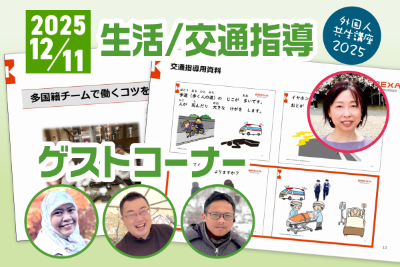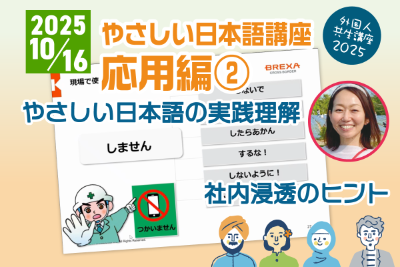- やさしい日本語
- ひらがなをつける
- Language
We provide multilingual content through machine translation. Translation accuracy is not 100%. About the multilingualization of the JAC website
- About JAC
- JAC Membership Information
- Specified Skilled Worker Acceptance
- Specified Skilled Worker Overview of the system
- 10 Mandatory Assistance for Foreigners
- Online individual consultation
- Seminar on Coexistence with Foreign Nationals
- Leading examples of host companies
- Case studies collection "Visionista"
- Foreigner's Voice
- Foreign Resident Acceptance Manual / Q&A
- Useful column "JAC Magazine"
- Acceptance support services
- Specified Skills Acceptance Support Service
- Skills improvement support
- Online Special Education
- Skill training
- Japanese Language Course
- Education and Training Support
- Subsidy system for obtaining qualifications
- Support for creating a comfortable workplace
- Temporary Return Support
- CCUS charge support
- Support system for promoting the accumulation of employment history
- Post-acceptance training
- Compensation system for Specified Skilled Worker (i)
- Daily life support
- Medical interpretation support
- Support for daily life problems
- freeJob matching
- The Specified Skills Evaluation Exam
- Home
- JAC Magazine
- Specified Skilled Worker System Key Points
- What is Specified Skilled Worker (ii)? What is the difference with No. 1 and how to obtain it?
- Home
- JAC Magazine
- Specified Skilled Worker System Key Points
- What is Specified Skilled Worker (ii)? What is the difference with No. 1 and how to obtain it?

What is Specified Skilled Worker (ii)? What is the difference with No. 1 and how to obtain it?
I wrote the article!
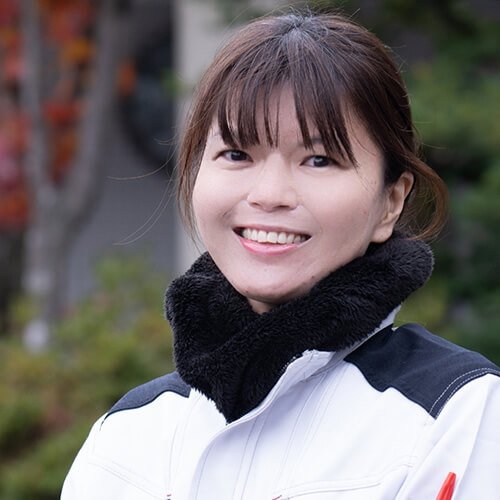
(One company) Japan Association for Construction Human Resources
Chief of Research and Development Department / Administration Department / Public Relations Department
Motoko Kano
(Kano Motoko)

Hello, this is Kano from JAC (Japan Association for Construction Human Resources).
Many companies currently employing Specified Skilled Worker (i) nationals would like them to stay for as long as possible.
Since Specified Skills visa is a relatively new type of residence status, there are very few foreigners who have acquired Specified Skilled Worker (ii).
So, this time we will introduce the difference between Specified Skilled Worker (i) and Specified Skilled Worker (ii), and how to obtain Specified Skilled Worker (ii).
What is Specified Skilled Worker (ii)? See also Specified Skilled Worker System
In order to solve the labor shortage at construction sites, the Immigration Control and Refugee Recognition Act was amended at the extraordinary Diet in 2018, and a new status of residence called "Specified Skills" was created.
Specified Skills is a system that accepts foreigners not only at construction sites but also in Specified Industry Fields where labor shortages are serious.
Specified Skills is supposed to accept foreigners on the same level as Japan.
Until now, Technical Intern Training graduates who had returned to their home countries after completing the internship can now be invited back and accepted directly.
Specified Skills has "Specified Skilled Worker (i)" and "Specified Skilled Worker (ii)".
As of May 2024, Specified Skilled Worker (i) can accept the following 16 fields.
- nursing care
- Building cleaning management
- Industrial product manufacturing industry (formerly: Basic materials, industrial machinery, and electrical, electronic, and information-related manufacturing industry)
- Automobile repair and maintenance
- Aviation
- stay
- Agriculture
- Fisheries
- Manufacture of food and beverages
- Food service industry
- construction
- Shipbuilding and ship machinery industry
- Automobile transportation business
- Railway
- forestry
- Wood industry
Of these, 11 fields can be accepted in Specified Skilled Worker (ii), excluding nursing care, Automobile transportation business, railways, forestry, and Wood industry.
Previously, Specified Skilled Worker (ii) only covered the construction and Shipbuilding and ship machinery industry sectors of welding.
However, with the 2023 Cabinet decision, the scope has been expanded.
As of 2023, we are now able to accept Specified Skilled Worker (ii) in all industries except the nursing care field.
The four fields of "Automobile transportation business," "railways," "forestry," and "Wood industry" will be newly added by the Cabinet decision in March 2024, and will be accepted by Specified Skilled Worker (i) first.
As of May 2024, we are no longer accepting Specified Skilled Worker (ii).
In addition, the Cabinet decision in March 2024 added new tasks in the "Industrial Product Manufacturing Field," "Shipbuilding and ship machinery industry Field," and "Manufacture of food and beverages Field," but as of May 2024, Specified Skilled Worker (ii) for the additional work in the "Industrial Product Manufacturing Sector."
How is Specified Skilled Worker (ii) different from Specified Skilled Worker (i)?
What are the differences between Specified Skilled Worker (ii) and Specified Skilled Worker (i)?
We will compare the differences between Type 2 and Type 1 in terms of skill level, period of stay, and Japanese language proficiency.
| Specified Skilled Worker (ii) | Specified Skilled Worker (i) | |
|---|---|---|
| Qualification Overview | For foreigners engaged in skilled and skilled work belonging to the Specified Industry Fields | For foreigners engaged in work that requires a considerable degree of knowledge or experience belonging to Specified Industry Fields |
| Period of stay | 3 years, renewable every year or every 6 months, no cap | Renewal every year, six months or four months, up to a total of five years |
| Skill Level | Check through exams etc. | Confirmed by examination, etc. (Foreigners who have successfully completed the Technical Intern Training (ii) are exempt from examinations, etc.) |
| Japanese language proficiency level | No need to check through tests etc. | Confirm the Japanese abilities necessary for life and work through examinations, etc. (foreigners who have completed the Technical Intern Training (ii) well are exempt from examinations, etc.) |
| Bringing family members along | Possible if certain conditions are met (spouse, children) | Basically not acceptable |
| Assistance with Accepting Organizations or Registered Support Organizations | Not applicable | subject |
The "skilled skills" of Specified Skilled Worker (ii) are those who have acquired skilled skills from long-term work experience, etc., and are required to be able to give instructions and supervise as a leader of workers in the field.
On the other hand, the "skills that require a considerable degree of knowledge or experience" in Specified Skilled Worker (i) are the level at which a certain level of work can be performed without special training.
Specified Skilled Worker (i) can also be migrated to a good Technical Intern Training (ii).
We have a detailed explanation of the differences between Specified Skills and Technical Intern Training here, so please take a look at them as well.
10 differences between Specified Skills and Technical Intern Training. Know the advantages and precautions before considering them.
Introducing the requirements and methods for obtaining Specified Skilled Worker (ii)

To obtain a Specified Skilled Worker (ii), you must meet two requirements: (1) pass a The Specified Skills (ii) Evaluation Exam or Grade 1 of the National Trade Skill Test & Certification, and (2) gain a certain amount of work experience as a supervisor or leader.
The content of the exam and the required work experience vary depending on the field.
For example, in the construction field, "foreigners with skilled skills" can obtain a Specified Skilled Worker (ii) by meeting the following two requirements.
- A certain amount of practical experience as a team leader (practical experience as a team leader who supervises multiple construction technicians while working on a construction site and manages the process)
- Pass or obtain a Grade 1 of the National Trade Skill Test & Certification in a The Specified Skills (ii) Evaluation Exam for Construction Industry equivalent to the level of Grade 1 of the National Trade Skill Test & Certification (implementing entity: JAC)
By the way, for Specified Skilled Worker (i), you must pass a test to confirm your Japanese ability along with the Specified Skills measurement test, but in the case of Specified Skilled Worker (ii), you do not need to take the Japanese test to obtain a status of residence.
Please check the "The Specified Skills Evaluation Exam for Construction Industry page" for the implementation status of The Specified Skills (ii) Evaluation Exam for Construction Industry (Implementing Entity: JAC).
The Specified Skills Evaluation Exam for Construction Industry Page
Summary: There are two requirements to acquire Specified Skilled Worker (ii) Know the differences with No. 1.
Specified Skills is a status of residence created for the purpose of solving the shortage of human resources in the Japan.
Specified Skills has Specified Skilled Worker (i), Specified Skilled Worker (ii).
The difference between Specified Skilled Worker (i) and No. 2 lies in the level of technology required.
Specified Skilled Worker (ii) requires more advanced technology.
To obtain a Specified Skilled Worker (ii), you must meet two requirements: (1) pass a The Specified Skills (ii) Evaluation Exam or Grade 1 of the National Trade Skill Test & Certification, and (2) gain a certain amount of work experience as a supervisor or leader.
If you are a company that is considering accepting Specified Skilled Worker in the construction industry, please feel free to contact JAC!
Specified Skilled Worker is also introduced.
*This article is based on information as of May 2024.
The author of this article

(One company) Japan Association for Construction Human Resources
Chief of Research and Development Department / Administration Department / Public Relations Department
Motoko Kano
(Kano Motoko)
Born in Aichi Prefecture.
He is in charge of public relations, research and investigation, and is the person behind social media.
We update our social media accounts daily with the desire to make people fall in love with Japan, to spread the appeal of construction from Japan to the world, and to ensure that Japan's construction industry continues to be the industry of choice around the world.
He is also engaged in research into the feasibility of implementing skills evaluation exam in Asian countries, and is conducting interviews with local organizations in each country.
Related articles
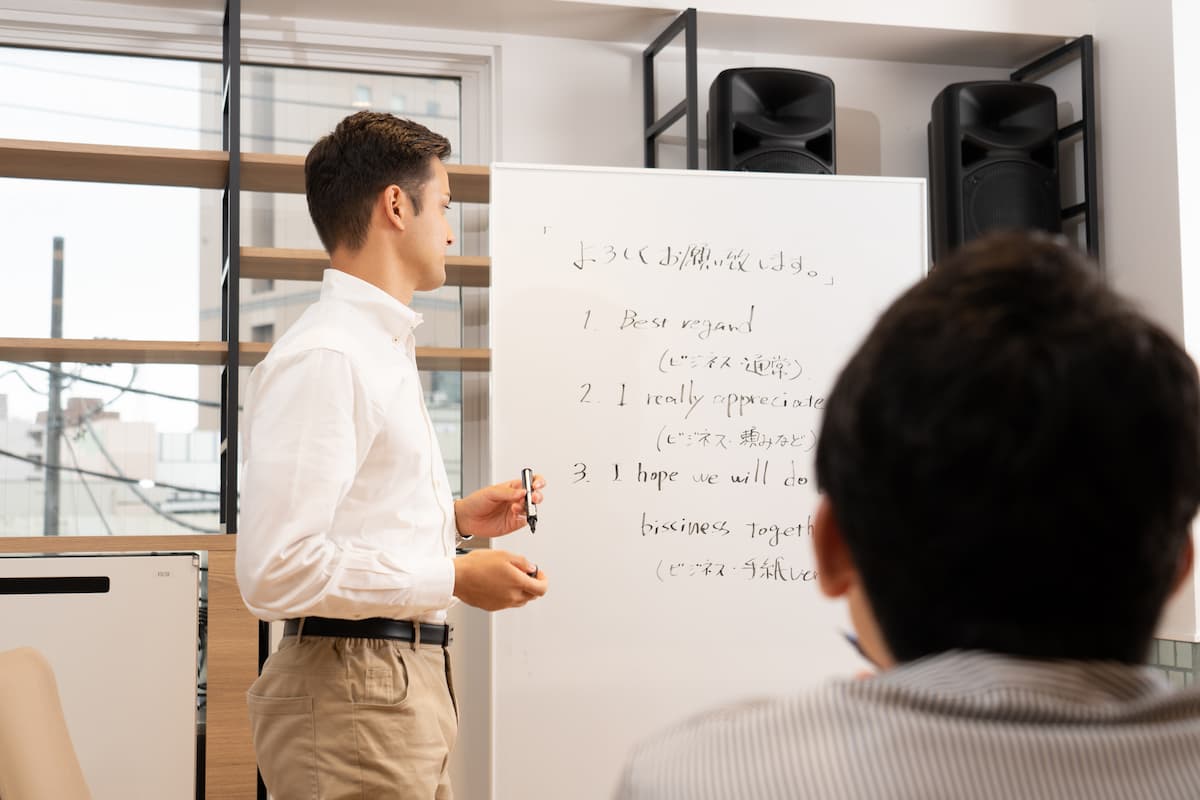
What is the estimated cost to pay for Registered Support Organizations? See how you can support yourself
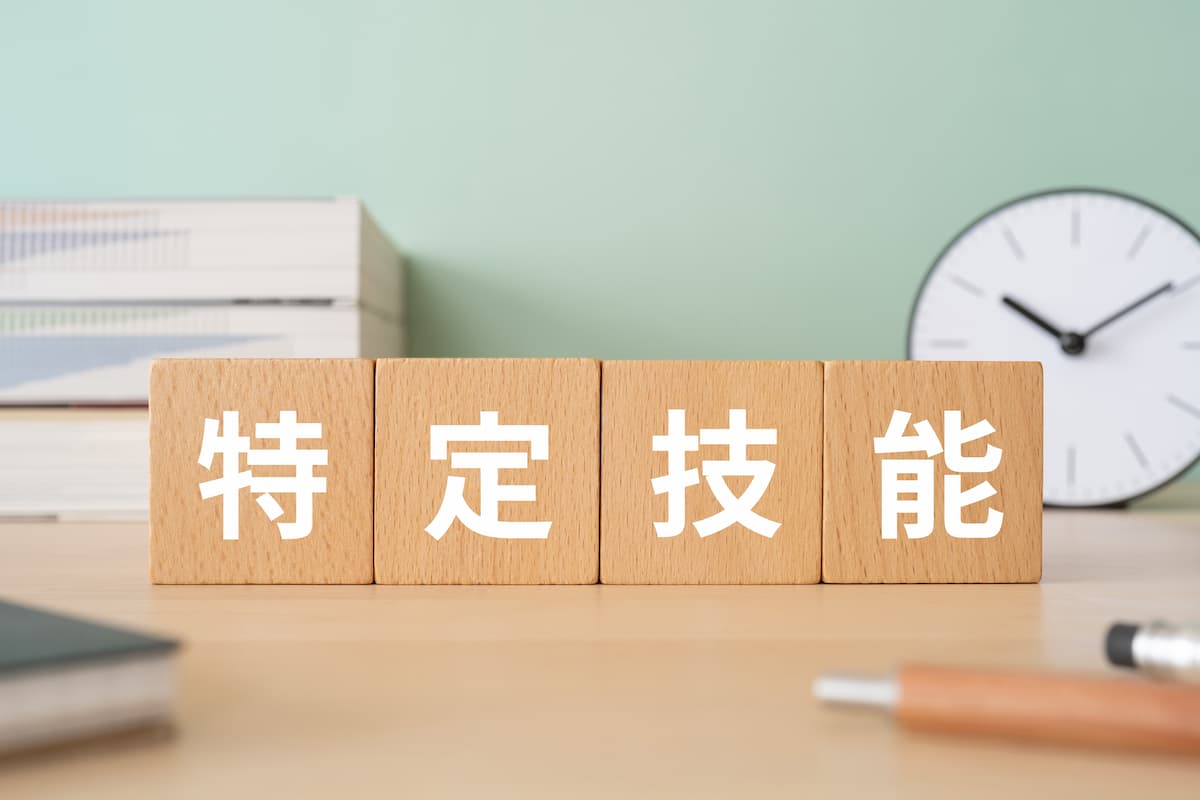
What is Registered Support Organizations? Introducing the content of support in an easy-to-understand manner

What is the "life orientation" that is carried out when hiring a Specified Skilled Worker?
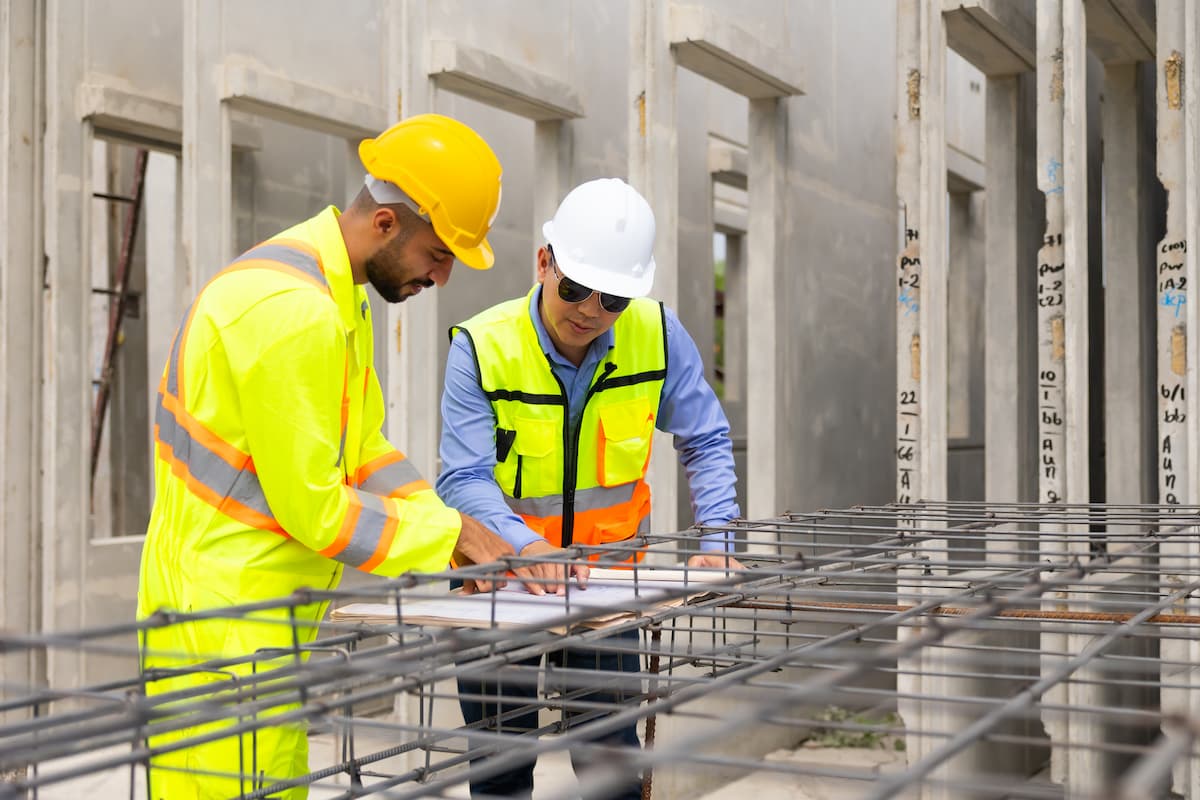
What is the number of people accepted for Specified Skilled Worker? Is there a limit to the number of people in the construction field?













